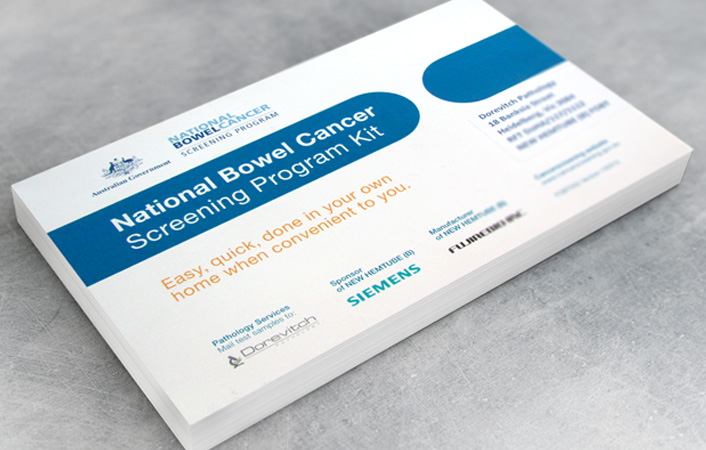Bowel cancer figures show most tests binned
 Figures from the Australian Institute of Health and Welfare show that while more people are doing bowel cancer screening, most still throw away the kit when it arrives in the mail.
Figures from the Australian Institute of Health and Welfare show that while more people are doing bowel cancer screening, most still throw away the kit when it arrives in the mail.
Between July 2013 and June 2014, just 36 per cent of the 1.4 million people sent bowel cancer screening tests sent the kit back for analysis.
The figure is up 2.6 per cent on the previous year’s participation rate of 33.4 per cent.
But the level of bowel cancer check is still well below that of breast or cervical cancer.
Of the 500,000 people that participated in the program, 38,000 showed abnormalities that warranted further tests.
Women are more likely to do the screening test than men, but men showed higher rates of bowel cancer.
The latest review also revealed that Aboriginal and Torres Strait Islander people completed fewer kits, had higher rates of positive screening results and lower rates of colonoscopies.
Bowel Cancer Australia chief executive Julian Wiggins says all Australians over age 50 should use the faecal immunochemical test (FIT) at least every two years, even if they do not have symptoms or a family history of bowel cancer.
“Screening using a faecal immunochemical test is one of the most effective ways to reduce the risk of bowel cancer as it can help detect pre-cancerous polyps for removal during colonoscopy or cancer in its earliest stages when it is easier to treat and cure,” Mr Wiggins said.
Tips for reducing the incidence of bowel cancer include a diet high in fibre, regular exercise, reducing meat and alcohol intake, obesity and smoking.
More details on the postal kit program are available at the government’s National Bowel Cancer Screening Program website.








 Print
Print